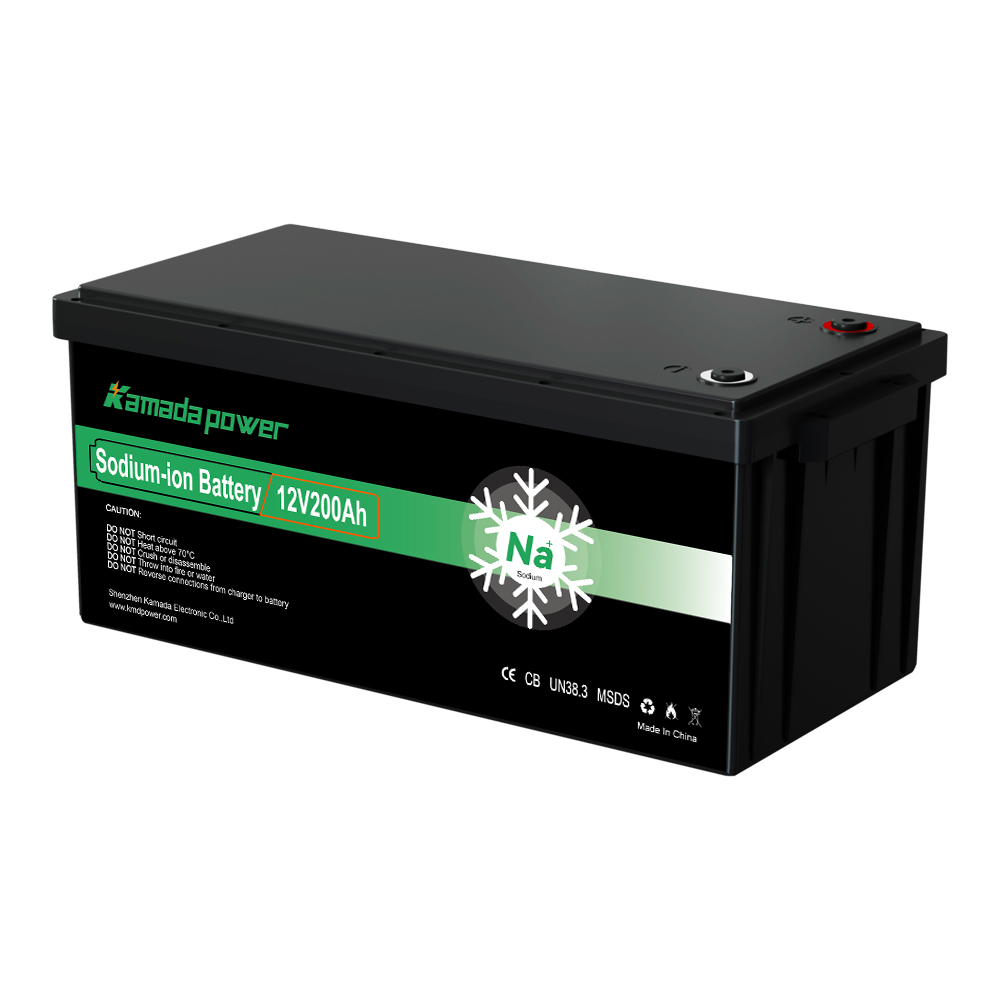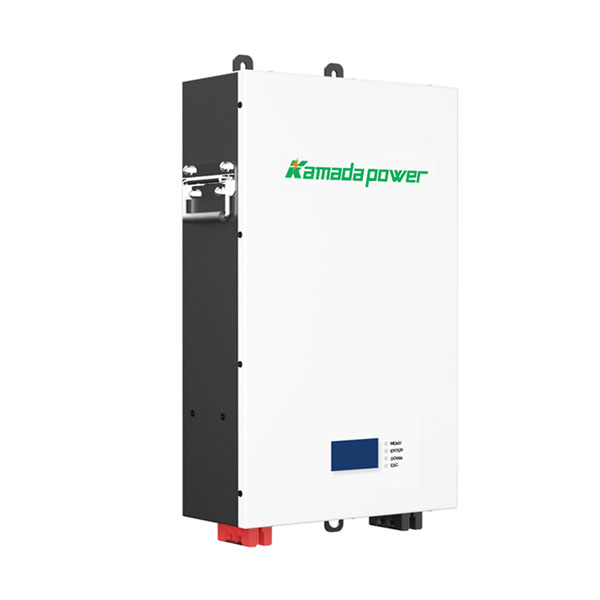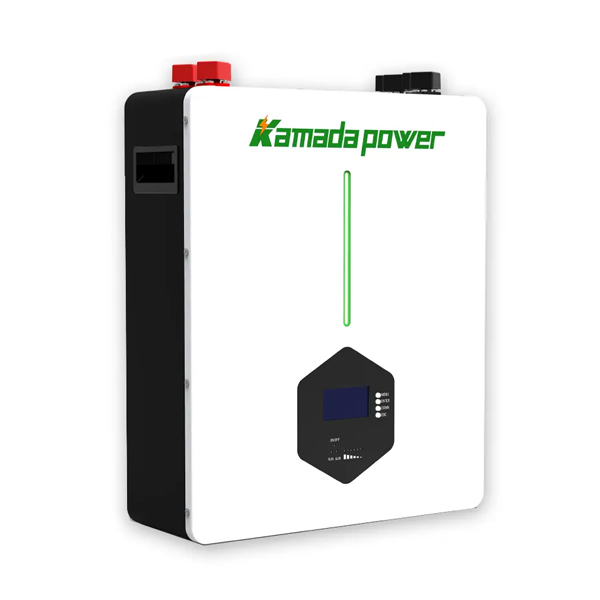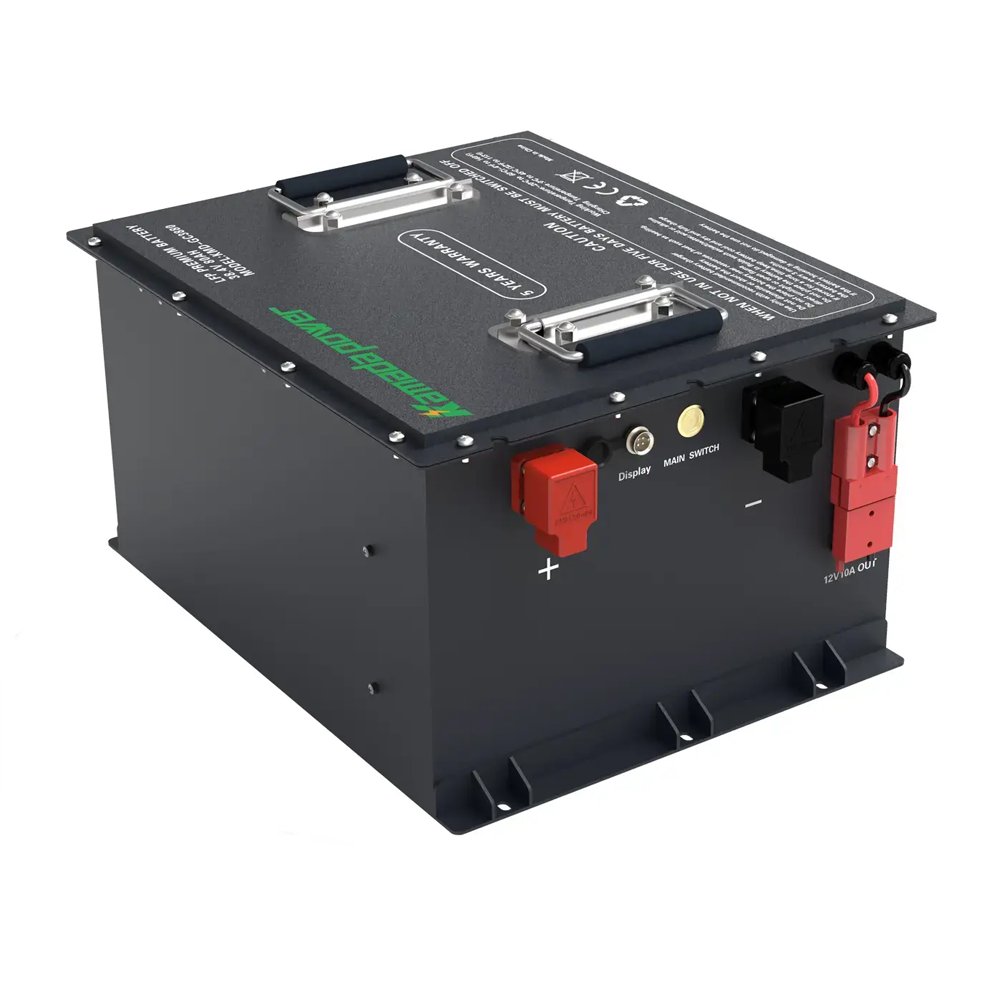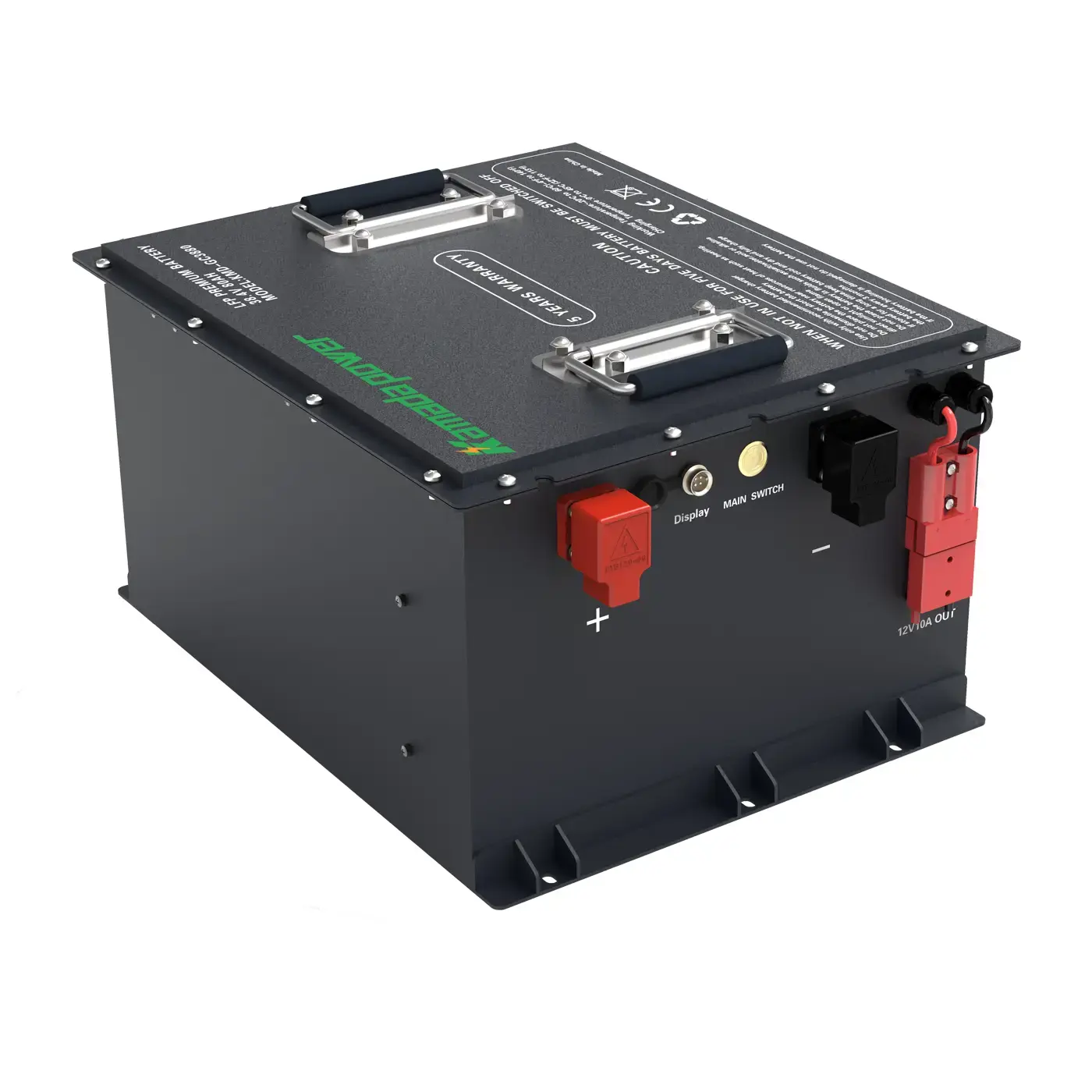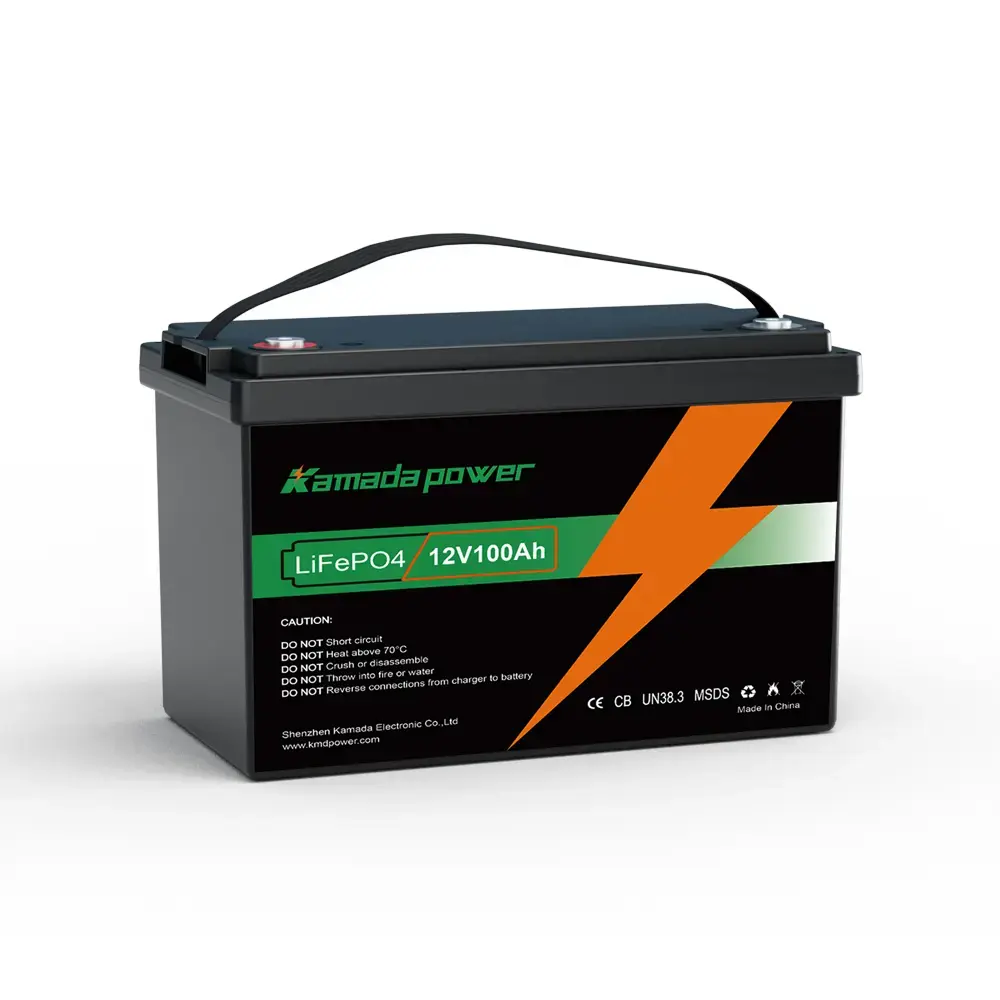When choosing the right 12V battery for your application, understanding the types, advantages, and maintenance requirements is essential. This article provides an in-depth analysis of different 12V battery types, their specific applications, and how to optimize their performance for a longer lifespan.
What is a 12V Battery?
A 12V battery is a rechargeable power source designed to deliver 12 volts of energy to various devices. It is commonly used in automobiles, RVs, boats, and backup power systems. The term “12V” refers to the nominal voltage, which typically ranges between 12.6V when fully charged and around 10.5V when discharged.
Why 12V?
The 12V standard is widely used because it balances power efficiency and safety. It provides sufficient voltage to start vehicle engines, power RV and marine systems, and store solar energy, all while being low enough to avoid requiring high-voltage protection measures.
Belangrijkste kenmerken:
- Spanning: 12 volts
- Capacity Range: Varies depending on battery type and size
- Common Applications: Vehicles, solar power systems, UPS devices
12V Battery Types
De juiste keuze maken 12V battery depends on your needs. Here’s a breakdown of the most common types:
Flooded Lead-Acid Batteries
Imagine you’re driving cross-country in your RV, and your battery suddenly dies. A flooded lead-acid battery, if well-maintained, provides reliable power to keep your fridge running and lights on. These batteries contain lead plates submerged in an electrolyte solution (sulfuric acid and water).
Pros:
- Cost-effective and widely available
- Suitable for automotive and marine applications
- Long lifespan with proper maintenance
Cons:
- Requires periodic maintenance (adding distilled water)
- Can emit harmful gases and must be properly vented
Toepassingen:
- Automotive starting systems
- Golf carts and boats
- Backup power systems
Gelbatterijen
For those who venture into remote areas with their solar-powered camper, gel batteries are an excellent choice due to their spill-proof nature and resistance to deep discharges. These batteries use a silica-based electrolyte to create a gel-like consistency that prevents leakage.
Pros:
- Onderhoudsvrij
- Resistant to vibration and shock
- Ideal for deep-cycle applications
Cons:
- Higher cost compared to flooded lead-acid batteries
- Sensitive to overcharging
Toepassingen:
- Medical devices
- Off-grid solar systems
- RVs and boats
AGM accu's
Need a battery that can handle heavy loads without maintenance? AGM batteries use absorbent glass mats to hold the electrolyte, ensuring higher performance and safety.
Pros:
- Maintenance-free and spill-proof
- Higher discharge rates and efficiency
- Longer lifespan than flooded batteries
Cons:
- Higher initial cost
- Sensitive to overcharging
Toepassingen:
- UPS systems
- Automotive and marine
- Backup power for critical devices
LiFePO4 (Lithium Iron Phosphate) Batteries
If you’re looking for the best battery for solar energy storage, marine use, or RVs, 12V LiFePO4 battery are the top choice. Compared to lead-acid batteries, they last up to 10 times longer and require no maintenance.
Pros:
- Lightweight and compact
- No maintenance required
- Higher efficiency and longer cycle life (4000+ cycles)
- Safe and stable chemistry
Cons:
- Higher upfront cost
- Requires a Battery Management System (BMS) for optimal performance
Toepassingen:
- Electric vehicles
- Solar energy storage
- RVs, boats, and backup power systems
Why Are 12V Batteries Standard?
The 12V standard originated from automotive electrical systems in the early 20th century and became the global norm due to its balance between power output and safety. Compared to 24V or 48V systems, 12V offers:
- Adequate Power: Sufficient for automotive starters, solar energy storage, and low-voltage appliances.
- Veiligheid: Lower risk of electric shock compared to higher voltage systems.
- Component Compatibility: Most DC appliances, inverters, and charge controllers are designed for 12V operation.
12V Battery Types (Comparison Table)
Different 12V batteries serve distinct purposes. Below is a comparative analysis:
| Batterijtype | Levenscyclus | Onderhoud | Gewicht | Kosten | Beste voor |
|---|---|---|---|---|---|
| Flooded Lead-Acid (FLA) | 200-600 cycles | High (water refilling) | Heavy | Laag | Automotive, marine |
| AGM (Absorbent Glass Mat) | 600-1200 cycles | Laag | Matig | Medium | UPS, RVs, boats |
| Gelbatterij | 500-1200 cycles | Laag | Matig | Medium | Medical devices, deep-cycle use |
| LiFePO4 (lithiumijzerfosfaat) | 3000-7000 cycles | Geen | Lichtgewicht | Hoog | Solar, EVs, long-term applications |
Cycle vs. Starter Batteries
Not all 12V batteries serve the same purpose.
- Starter Batteries: Deliver short bursts of high power to start engines (e.g., cars, motorcycles).
- Deep Cycle Batteries: Designed for sustained power discharge over long periods (e.g., RVs, solar storage).
Key Differences
| Functie | Starter Battery | Deep Cycle Battery |
|---|---|---|
| Discharge Depth | 5%-10% | 50%-80% |
| Levenscyclus | 300-500 | 1000-5000 |
| Best Used For | Vehicle ignition | Solar, RV, marine systems |
What is the Best 12V Battery for Your Application?
| Toepassing | Best Battery Type | Levensduur |
|---|---|---|
| Car Starting | Overstroomd loodzuur | 3-5 jaar |
| RV Power | AGM or LiFePO4 | 5-15 years |
| Opslag van zonne-energie | LiFePO4 | 10-15 years |
| Marine (Boat/Trolling) | AGM or Gel | 5-10 years |
| UPS Backup | AGM | 5-10 years |
LiFePO4 (Lithium Iron Phosphate) – The Best 12V Battery?
12V LiFePO4 Battery has become the preferred choice for many applications due to:
- Longer Cycle Life: 3000-7000 cycles vs. 500-1200 for lead-acid.
- Higher Efficiency: 95%+ energy efficiency vs. ~70% for lead-acid.
- Lichtgewicht: 50%-70% lighter than traditional lead-acid batteries.
- Snel opladen: Can charge up to 5X faster.
- Low Maintenance: No water refilling or venting required.
Cold Cranking Amps (CCA) – Why It Matters?
CCA measures a battery’s ability to start an engine in cold temperatures.
| Vehicle Type | Recommended CCA |
|---|---|
| Small Cars | 300-500 CCA |
| SUVs/Trucks | 600-800 CCA |
| Diesel Trucks | 800-1000 CCA |
| Heavy Equipment | 1000+ CCA |
12V Battery Maintenance Tips
12V Flooded Lead-Acid Battery Maintenance
| Taak | Beschrijving | Frequentie |
|---|---|---|
| Check Water Levels | Add distilled water to maintain electrolyte levels. | Maandelijks |
| Clean Terminals | Remove corrosion using a baking soda solution. | Every 3-6 months |
| Equalization Charge | Perform an equalization charge to prevent sulfation. | Every 3 months |
| Check Voltage | Use a multimeter to ensure proper charge levels. | Maandelijks |
| Proper Ventilation | Ensure the battery is stored in a ventilated area to prevent gas buildup. | Always |
12V AGM & Gel Battery Maintenance
| Taak | Beschrijving | Frequentie |
|---|---|---|
| Check for Cracks/Leaks | Inspect battery casing for any damage. | Every 6 months |
| Use Proper Charger | Avoid overcharging to prevent damage to the electrolyte. | Always |
| Monitor Voltage | Use a battery monitor to track charge levels. | Maandelijks |
| Store at Optimal Temperature | Keep in a cool, dry place (32°F – 77°F). | Always |
12V Lithium-Ion Battery Maintenance
| Taak | Beschrijving | Frequentie |
|---|---|---|
| Use a BMS (Battery Management System) | Ensures voltage and temperature regulation. | Always |
| Avoid Full Discharge | Keep charge level between 20%-80% for longer life. | Always |
| Proper Storage | Store at 50% charge in a dry, cool environment. | If not in use for long periods |
| Check for Firmware Updates | Some lithium batteries have software that may need updates. | As available |
FAQ
1. Can I use a car battery for solar storage?
No. Car batteries are designed for high bursts of power, not deep cycling. Use deep-cycle AGM or LiFePO4 instead.
2. What is the best battery for off-grid solar systems?
LiFePO4 batteries are the best due to their long cycle life and high efficiency.
3. How do I extend my 12V battery lifespan?
- Avoid deep discharges (<50% for lead-acid, <20% for lithium).
- Store in a cool, dry place.
- Use a proper charger (e.g., MPPT solar charge controller for solar setups).
Conclusie
De juiste selecteren 12V battery ensures optimal performance for your specific application. Whether you need a reliable car battery, a long-lasting solar energy storage solution, or a maintenance-free marine battery, understanding the pros and cons of each type helps you make an informed decision. 12V LiFePO4 battery stand out as the most advanced option for those seeking longevity, efficiency, and safety.
By considering factors like lifespan, maintenance, and application, you can find the best 12V battery to power your needs efficiently and effectively.


